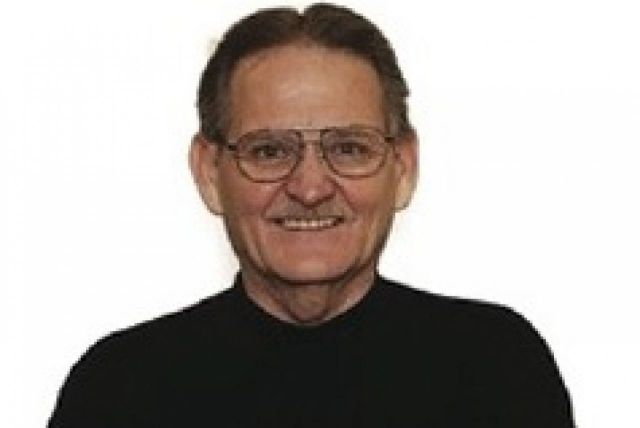Because That’s What I Do

It all started with a box of crayons and a piece of butcher paper, when he was a high school junior. He and his family were on vacation in Cape May. They were at dinner at the Filling Station, a restaurant that specialized in fried chicken. Meals were served family-style. You got a bucket of chicken, and it literally came in a bucket, a basket of French fries, a bowl of coleslaw, and pitchers of iced tea or lemonade. It was an all-you-can-eat affair, and his dad and a family friend maxed that proposition out every year.
On one particular visit, he was seated at the end of the table. At the next table, which was very close, a middle-aged couple was enjoying the same fare. He looked over at their table and there was a drawing on the brown butcher paper that this restaurant used as tablecloths. For the children there were boxes of crayons on each table. It gave them something to do while waiting on their food. Apparently, this gentleman needed something to do as he waited. His drawing was the window pattern that this building featured, with some modifications that made it all the more attractive.
Noticing that it caught the young boy’s eye the man said, “Do you recognize that,” pointing to the drawing?
“Yes, it’s those windows, and you made them better.”
“Thank you; that’s what I do.” He shared that he was a feature architect. He explained that on large projects he deals with one feature or aspect of the total project, which often became the focal point of the entire design. He said most architects tend to engage with the entire projects, but for him the real fulfillment came from directing his talents toward a single element of the project and then making it better. It was all about the improvement process for him.
Sensing he had the younger man’s attention the architect said, “Find something you like to do, something for which you have some talent, get good at it, and make it what you do. Don’t worry about titles, promotions, and money. Get good, follow your interests, and over time, they’ll all take care of themselves.”
At the time, that conversation, like so many conversations people have throughout life, didn’t have any real impact. Over time it did. As that young man entered his post-high school education, that conversation came back to him a time or two. As he entered his professional life, it came back again. But it wasn’t until he was in mid-career, that the full impact of that chicken-dinner conversation with the architect/philosopher had its real impact.
He rose to the top of his profession, and he did it in a difficult environment. Times were tough all over, and his line of work was right in the middle of it. He knows he’s good at what he does. Truth be told he’s great at what he does, but he’s the type who downplays his skills and his experience base. He knows the profession from the ground floor up. He’s touched all the bases. He can easily offer a 30,000-foot strategic perspective one minute, then drill down and provide tactical insights at the three-foot level the next minute. People value his insights, and he’s a valuable asset to the organization. When he’s involved things get better; when he is on the team, its’s safe to assume that improvement is on the agenda!
Finding great contentment in what he does, it largely what drives him. Helping to make things better, is what provides his professional drive and powers his personal contentment. He lives the advice that was shared with him more than 35 years earlier, and because he does, he’s earned the respect of peers, supervisors, and key stakeholders within his professional field. And perhaps more importantly, at the same, time he knows and appreciates a level of personal satisfaction that many people never attain.
It’s not hard to imagine that opportunities come to him all the time to change to any number of other professional environments and focus on other aspects associated with his particular field of practice. Some have involved a salary increase, some would sport a flashier title, and some would carry some interesting perks. However, as of yet, nothing has come across his radar screen that would provide the professional and personal satisfaction he’s achieved. That said, he’s happy, genuinely very happy, doing what he does.
Regardless of your career, profession, line of work, or vocation, know when you’re at a great spot, appreciate it for what it is and what it provides. And when someone asks why you’re involved in that particular line of work, you can honestly say, “Because that’s, what I do!”
